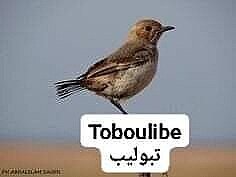“Throughout the cold war, we contained a global threat to market democracies, now we seek to enlarge their reach” – Anthony lake.
The above title looks past the common socialist/leftists opinionated premises and addresses in the disparities and misconceptions present in the modern globalist economic construct. What does it mean, for instance, that the U.S is the richest nation state on the planet, can a concept, or economic model like capitalism really co-exist with a political model like democracy, what does it mean that our GDP’s growing incrementally, and how does that contrast with the global debt crisis. We’ve seen what happened to the Soviet Union in the early 1990s, so that means socialism, as an economic/political model is globally inapplicable, right?
It’s often helpful to make an appeal to some of the historical theoretical perspectives bequeathed to us from past civilizations, particularly ancient Greece, the premise from which, we can extrapolate some of the concepts that constitute the building blocs of an eventual globalist political order, Alan Ryan makes a reluctant, yet ponderable speculation in his book (on politics: A history thought from Herodotus to the present. 2012) about how the Greek city-state system, fell to the Phillip of Macedon and his son Alexander because “They could not develop political arrangements on a larger scale than the Polis”. Ponderable I say because of its tacit attempt in defining globalization as (Liberals usually suggest) a mitigator of war and a catalyst for cooperation. He follows that statement with what I thought was a tersely excellent rhetorical question “The thought is simple: If states exist to handle what cannot be handled by families and informal groups, must we create a world state or a world government to handle the problems that individual states cannot?”.
In the book ‘The economic consequences of the peace’ written as far back as 1919 John Maynard Keynes eulogized the period that shortly preceded free market globalization as an “extraordinary episode in the economic progress of man” a period in which mankind’s industrial activities had reached an uncalled-for all time high, temporarily halted by the protracted industrial stagnation of the first world war and the 20 years crises of 1919-1939 that followed. I happen to believe that the siphoning or concentration of wealth in the way that it currently is is not only detrimental to what we call democracy, but also a recipe for dictatorship in other way, plutocracy is a term that’s closest in description.
This progressive, multifaceted evolution of international relations would eventually mushroom into what we today call Neoliberal institutionalism, a distinctly important part of the globalist network, taken role as the ideological substratum upon which the United Nations organizations was built, an organization that’s supposed to emulate the disastrous failures of the League of Nations that subsequently led to the outbreak of the second world war. Thereupon, it naturally leads us to the post war period, the arms race and global ideological shift carried upon the shoulders of nationalist anti-colonialist movements of diverse compositions, allegiances and motives, events which engulfed much of the second half of the 20th century (and not by a happenstance), concluding with the disintegration of the Soviet socialist bloc and the succession of global neoliberal capitalism and free market ascendancy.
Micheal Parenti presents a discourse intended to expose the west’s idea of globalization as a policy of economic, free market expansionism in which, he suggests, matters not the system of governance a country may have or its attitude towards its citizens, but the economic path it ultimately charts, arguing that the nationalization of one’s markets and resources automatically compels ‘alleged advocates’ of democracy and freedom (plutocratic policy makers in the west) to commit a coercive “regime change” policy, be it through imposing economically crippling sanctions, creating, financing, supporting insurgencies, direct pretextual intervention, or simply, all of the above, all of which seem to accord with the classical realist thought, but progressively defies liberalism every step of the way, a “distortion” of Liberal values if you well.
The IMF (International monetary fund) said a protracted period of low interest rates had stimulated a debt buildup worth %225 of the global GDP in 2016, approximately 12 points above the 2009 record. An article published on the Guardian three months ago states “The world’s poorest countries had their debts largely written off as a result of the Gleneagles agreement of 2005, but the IMF said debt-to-GDP ratios were once again on the rise and were now above 40% of GDP. Nearly half of the debt is on non-concessional terms, which has resulted in a doubling of the interest burden as a share of tax revenues in the past 10 years”
Global economic growth is accelerating, yet the world’s total gross debt-to-GDP ratio has ballooned to as high as %250, up from the previous %210 prior to the global economic crisis exactly a decade ago. So called regulators in various economies within the globalist free market empire had taken some steps to get the banking sector to deleverage, a fancy word for reducing debt levels by selling one’s assets. Sailing on a hole-ridden boat aren’t we, doubts about economic sustainability have all but risen, yet to be harvested by any public incentive for action. Interest rates are on the rise, and with it the possibility of another global crisis.
The banking system is in every which way, an anarchy for the rich, with no regulation, no public interference, and with global implications and the capacity to alter world politics, the empire feeds off the republic as Parenti says. Think of countries like Libya, and other such formerly debt-free nations that, unsurprisingly, came out unscathed after the 2008 crisis, an impending global economic melt down is nearing our threshold, and this time, it may very well be accompanied with the collapse of many societies and subsequently civil wars.



